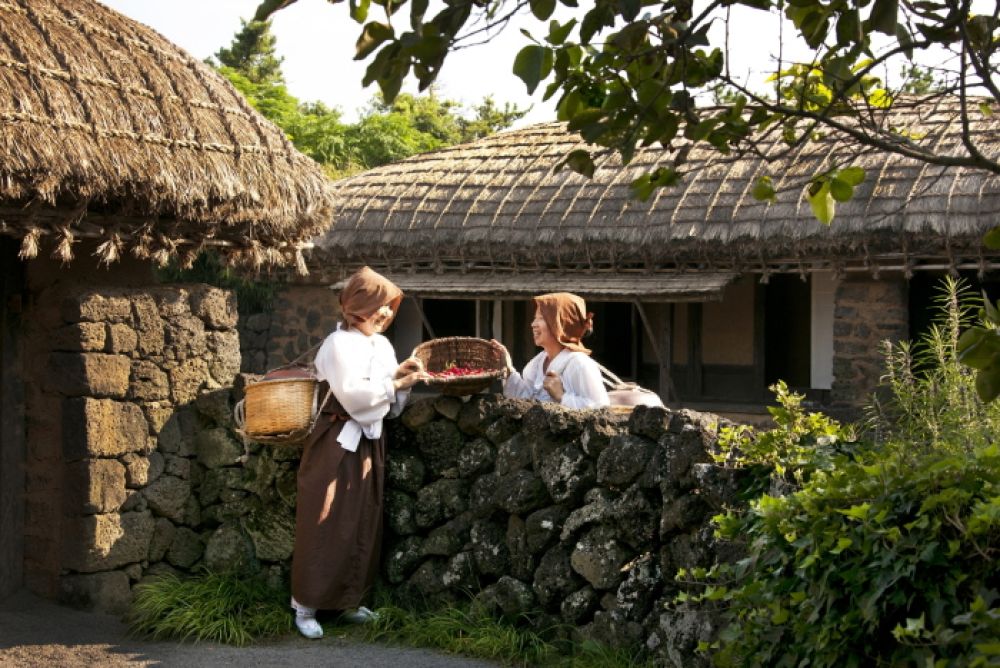

Located on the beautiful island of Jeju, South Korea, the Jeju Folk Village Museum stands as a testament to the rich cultural history of the region. Established in 1984, this open-air museum has been diligently preserving the traditional Korean way of life, particularly that of the Jeju Island villagers from the 1890s.
The Jeju Folk Village Museum was created to ensure that the unique culture and traditions of Jeju do not fade into obscurity. It was during the period of rapid modernization in the 1970s and 1980s that concerns about losing traditional Korean culture grew, leading to the construction of the village.
Through meticulous research and with the help of historians and local elders, the museum's founder, Shin Yong-Hoon, was able to recreate over 100 traditional buildings and structures. These include residential homes, government offices, schools, and various themed villages that depict the different aspects of daily life in historic Jeju.
The Jeju Folk Village Museum is divided into various sections, each highlighting specific areas of Jeju life. Notable attractions include:
Additionally, the museum boasts a vast array of artifacts and cultural items, including farming tools, household utensils, and traditional costumes.
Since the Jeju Folk Village Museum's inception, it has played a significant role in the tourism industry of Jeju Island. The historical allure and educational value of the museum have consistently attracted both domestic and international visitors, eager to experience Korea's rural past. Initially, the museum appealed mainly to those with an interest in history and culture, but it has since become a staple on itineraries for visitors of all backgrounds.
In recent years, a notable trend in Jeju tourism, and at the Jeju Folk Village Museum in particular, has been the rise of experiential and educational tourism. Visitors are no longer content with merely observing; they want to participate and learn through hands-on experiences. The museum caters to this trend by offering traditional games, craft-making workshops, and seasonal events that immerse visitors in Jeju's cultural heritage.
Another trend that has influenced tourism at the museum is the popularity of Korean dramas. The Jeju Folk Village Museum was the filming location for the famous Korean historical drama "Dae Jang Geum (Jewel in the Palace)," which has increased its profile among fans of Korean media and has drawn a new wave of international tourists seeking to walk in the footsteps of their favorite characters.
The Jeju Folk Village Museum continues to serve as an important tool for the preservation of Korean heritage. It operates not only as a tourist attraction but also as an educational resource, providing insight into the traditional Jeju way of life to students, researchers, and history enthusiasts. By maintaining a delicate balance between conservation and tourism, the museum ensures that Jeju's cultural legacy endures for future generations to appreciate and learn from.
In conclusion, the Jeju Folk Village Museum represents a significant chapter in the narrative of Jeju's tourism history. It continues to adapt to modern trends while honoring the intrinsic values and traditions of Korean culture, securing its position as an invaluable destination for visitors from around the world.